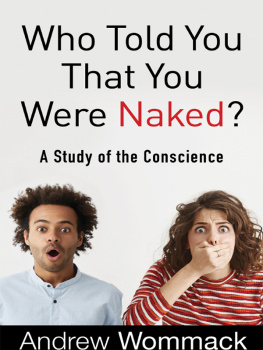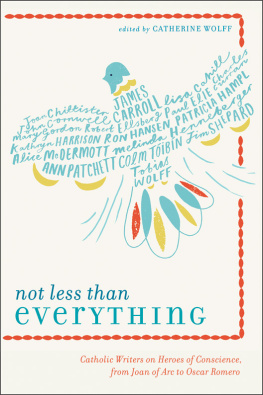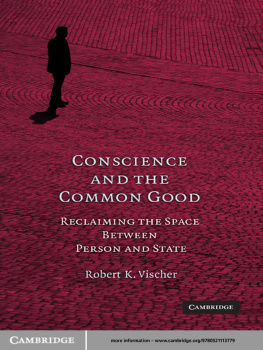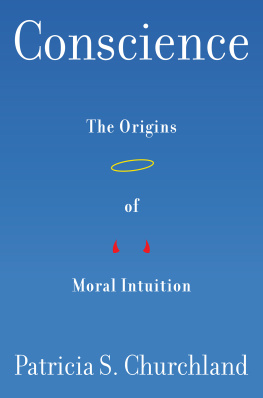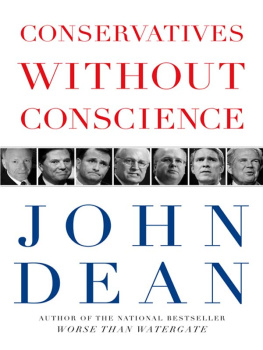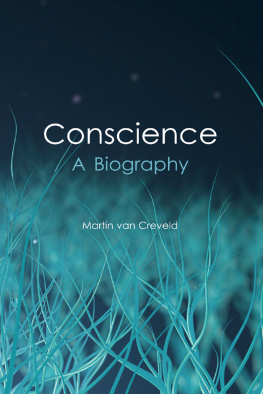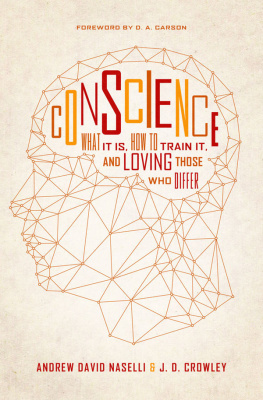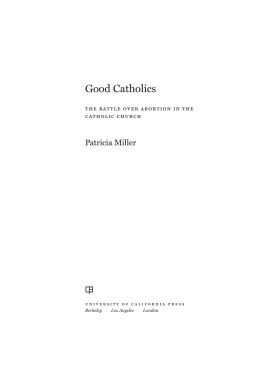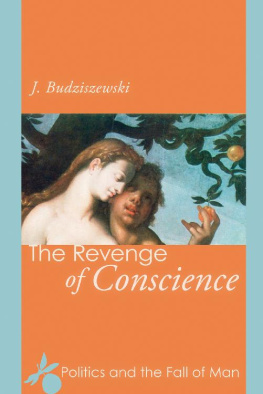The University of Chicago Press, Chicago 60637
The University of Chicago Press, Ltd., London
2021 by The University of Chicago
All rights reserved. No part of this book may be used or reproduced in any manner whatsoever without written permission, except in the case of brief quotations in critical articles and reviews. For more information, contact the University of Chicago Press, 1427 E. 60th St., Chicago, IL 60637.
Published 2021
Printed in the United States of America
30 29 28 27 26 25 24 23 22 21 1 2 3 4 5
ISBN-13: 978-0-226-76205-0 (cloth)
ISBN-13: 978-0-226-76219-7 (e-book)
DOI: https://doi.org/10.7208/chicago/9780226762197.001.0001
Library of Congress Cataloging-in-Publication Data
Names: Cajka, Peter, author.
Title: Follow your conscience : the Catholic Church and the spirit of the Sixties / Peter Cajka.
Other titles: Catholic Church and the spirit of the Sixties
Description: Chicago ; London : The University of Chicago Press, 2021. | Includes bibliographical references and index.
Identifiers: LCCN 2020037871 | ISBN 9780226762050 (cloth) | ISBN 9780226762197 (e-book)
Subjects: LCSH: Catholic ChurchUnited StatesHistory20th century. | CatholicsUnited StatesHistory20th century. | ConscienceReligious aspectsCatholic Church. | ConscienceSocial aspectsUnited States. | Liberty of conscienceUnited States. | United StatesChurch history20th century. | United StatesCivilization1945
Classification: LCC BX1407.C75 C35 2021 | DDC 282/.7309046dc23
LC record available at https://lccn.loc.gov/2020037871
This paper meets the requirements of ANSI/NISO Z39.48-1992 (Permanence of Paper).
In 1977, Father James T. McHugh accused Senator Augustus Hawkins, a California Democrat, of violating the conscience. Hawkins had attempted to broaden the beneficiaries of the Civil Rights Act of 1964 (which banned discrimination based on race, color, religion, and sex) to include female employees who became pregnant. The amendment he and the Senate Committee on Human Resources had written compelled employers to offer insurance that covered childbirth and immediate postnatal procedures. This coverage meant that female workers could start families and return to work without losing their position. McHugh, director of the Committee of Pro-Life Activities, an official Roman Catholic body tasked with scrutinizing federal legislation especially as it affected health care, found no language in the bill allowing employers to exempt themselves from financing abortions. In his letter to Hawkins, McHugh explained that such a clause would be necessary to protect Church agencies from being faced by the amendment to support or provide abortion services in violation of our religious tenets and conscience convictions.
In 1968, Jesuit priest James E. Straukamp had written a similar letter, charging both the US military and the US Supreme Court with a momentous transgression against an individuals conscience. Straukamp, a professor of history and acclaimed antiwar activist from the Sacramento area, addressed his words to the adjutant general of the US Army. He wrote on behalf of his spiritual mentee, Louis A. Negre, a college student seeking discharge from the army on account of his growing discomfort with the Vietnam War. In the spring of 1971, after twists and turns in the California legal system, Negres case appeared before the Supreme Court, and the Jesuits letter entered the official record of that court. Father Straukamp deployed conscience language in much the same manner as McHugh, a fellow priest. He contended that the State of California must remove its hold from the conscience of a reluctant soldier to allow that individual to disengage from an immoral warmuch like McHughs letter suggested that the state open a loophole for Catholic employers to opt out of funding problematic medical procedures. Straukamp told the state that Catholics had a long tradition of listening to subjective, internal authorities, and the army as well as the Supreme Court should recognize this religious prerogative. He defiantly wrote, I counseled Private Negre that under the beliefs and teachings of the Catholic Church he is obliged to examine and form his own conscience in respect to participating or refusing to participate in war, explaining that under Catholic doctrine [Negre] would be in religious duty bound to act in conformity to his conscience if he became convinced in his sacred subjectivity that the war was unjust.
Just a few months after Straukamp wrote his letter, Father Shane MacCarthy accused the powerful Cardinal Archbishop Patrick OBoyle of trampling on conscience rights. OBoyle, the archbishop of Washington, DC, applied a strict reading of Humanae vitae (Of Human Life), Pope Paul VIs 1968 encyclical, to Catholic life in the nations capital. He prohibited priests from publicly critiquing the Catholic Churchs condemnation of artificial birth control, and he demanded that the laity conform to the prohibition. MacCarthy, a young priest only three years out of the seminary, pointed out that conscience, not the law, had the final say on matters of reproduction. For each individual man, his own conscience is the Norm of moral conduct. An ultimate subjective norm, he preached. MacCarthy argued that if a Catholic properly attended to conscience and it reached a conclusion different from the law, he or she could follow the subjective authority, use contraceptives, and remain in good standing with the church. OBoyle contended that the popes infallibility meant conscience should obey authority. But the parish priest reminded the cardinal archbishop that Humanae vitaeor any law, for that mattercould not force a Catholic to act against conscience.
What is shared by all three of these episodes, which represent the stories told in this book? Four overlapping trends found in these conflicts, some apparent and others concealed just below the surface, are the main threads that bind the following pages together. First, in each case a breakdown of the laws moral authority, prompted by the unjust ends it promised to yield or by its limited applicability to an individuals situation, compelled these priests to call for official recognition of a Catholics right to follow conscience, an immediate moral authority that grew in importance as the credibility of law (an external authority) faltered. Catholics turned to conscience because, as well known to students of the natural law tradition, unjust laws cease to be laws at all. Second, in each instance men who had undergone extensive seminary training and were ordained priests in the Roman Catholic Church stood up as the most outspoken defenders of subjectivity. That all three men wore clerical collars, offered Mass, heard confessions, and invoked conscience rights is hardly a coincidence, as explained below. Third, McHugh, Straukamp, and MacCarthy understood the right to follow conscience as a long-standing tradition championed by the Catholic Church for the past several hundred years. The priests strongly believed that authorities, whether church or state, should acknowledge the individuals right to refuse the law on account of the lofty place conscience-following held in Catholic moral and political teachings. Finally, these three stories feature a particularly Catholic notion of subjectivity and conscience as distinct from, but in conversation with, Americas liberal secular tradition and its Protestant roots. The clergymen in the episodes invoked conscience, not to act secular, rational, and Protestant, but to uphold a church teaching to follow conscience in the face of unjust statutes. As Catholics, they joined an American discourse of conscience and individual rights stretching from the founding of the Massachusetts Bay Colony to the Cold War: individualism has long been an American value, and American Catholics contributed to its shape on their own terms in the twentieth century. By the end of that century, those Catholics invoking conscience had done so from the perspective of the pro-life religious right. But the Catholic case for conscience rights actually arose from draft protests during the Vietnam War. The long-standing problem with the teaching on conscience rights, from the perspective of members of the hierarchy like Cardinal OBoyle, was its tendency to be invoked against church authority, which was done with stunning consequences in the debate over contraception in 1968.


